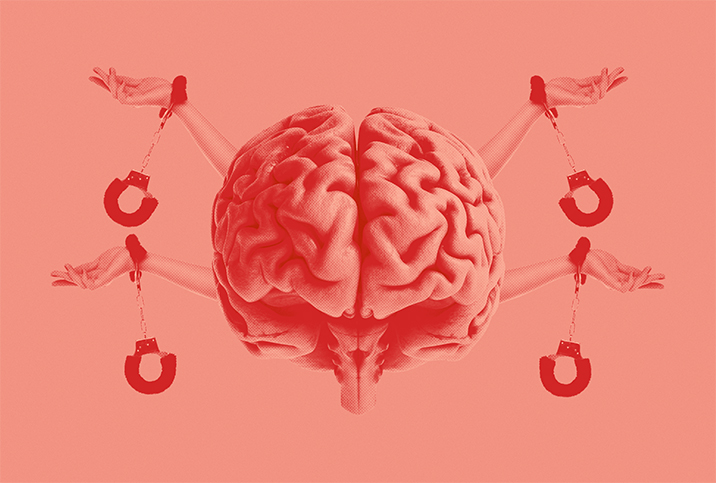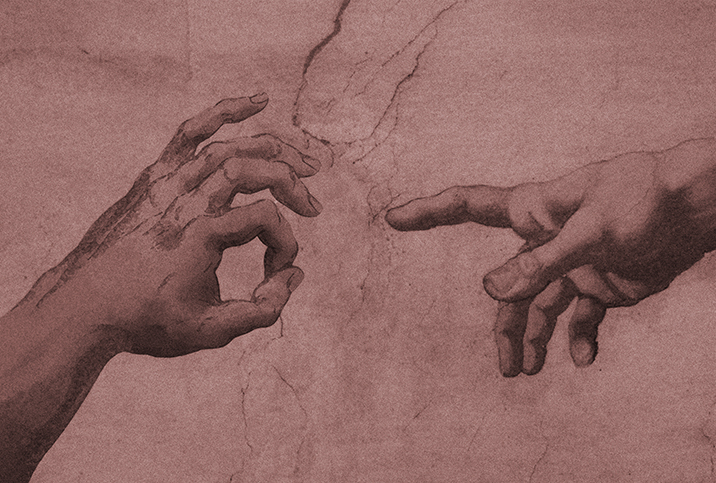How Do I Know If I Am a Sex Addict?

"How do I know if I am a sex addict?"
This may not be the right question to ask yourself if you are genuinely concerned about your sexual behavior. The terms "sex addict" and "sex addiction" are widely debated, and sex addiction is not an official, recognized diagnosis—though some people do identify with the term.
Rather than reaching automatically for a blanket term, look beyond labels to uncover deeper root causes for sexual behavior problems and seek the best type of support to help with them.
Sex addiction: Is it a disorder?
"Many sexologists share the sentiment that it's problematic to borrow a term used initially to discuss the role of substances like drugs and alcohol to describe behavior," said Carol Queen, Ph.D., who serves as the staff sexologist for Good Vibrations, a San Francisco–based sex toy retailer. "Sexologists focus on the effects of sexual behavior on the person's well-being and that of any partner/s."
Cay L. Crow, AASECT-certified sex therapist and supervisor from OrchidToys.com, said that more than anything, the term is a cultural phrase.
"Sex addiction is not an actual diagnosis in the DSM-5," Crow said, referencing the Diagnostic and Statistical Manual of Mental Disorders, Fifth Edition, the principal authority for psychiatric diagnosis. "American society perpetuates the idea that sex addiction is a scientifically recognized collection of symptoms that indicate a disorder.
"However, that's not the case," Crow continued. "The term 'sex addiction' is a cultural construct. In a sex-negative culture like ours, people choose to believe that there is such a thing as too much sex, and that individuals who have a lot of sex or have the type of sex that most people don't must be addicts."
According to Nicole Prause, Ph.D., a sexual psychophysiologist and licensed psychologist, the main issue with the misconception about sexual addiction as a legitimate diagnosis is that people could inadvertently neglect treatment for other medically diagnosable issues.
"A study of inpatients at a sex addiction treatment facility found 93 percent had another Axis I disorder," Prause said. Axis I conditions are mental health and substance use disorders. "That means these patients are being misled into treatment for a nonexistent disease instead of receiving evidence-based treatment for a known disorder."
If I'm not an addict, what's the problem?
"There are existing disorders and medications that can cause sexual behaviors to feel out of control," Prause noted.
Just because sex addiction isn't an official medical diagnosis doesn't mean you are not experiencing concerning behavior, such as:
- Mania, usually as a part of bipolar disorder, often includes increased sex drive. There are excellent, effective talk and medication treatments for bipolar disorder.
- Depressed mood can, in some cases, cause increased sexual desire. Decreased sexual interest is much more common, but the increased interest appears in some people to help regulate their mood. Depression has dozens of well-validated, effective treatments.
- Dopaminergic medications—especially those used to treat Parkinson's—can cause increased sexual interest. For this reason, patients taking these medications should be monitored for behaviors like increased sexuality, including inappropriate actions such as public masturbation.
Prause continued, "It is essential to note that sexual offending is not sex addiction. When someone forces another person to witness them masturbating, they should be referred for sex offender treatment, not sex addiction treatment."
What's in a name?
Labeling someone as a sex addict can be problematic, and not just because it may distract from a more accurate and treatable diagnosis.
Crow explained that labeling this issue as sex addiction sends several problematic messages that do not reflect what's actually going on:
- The individual has an addiction and is therefore not responsible for their behavior.
- Sex is the actual problem. A thorough psychological interview will show multiple psychological concerns that are not dependent on sex.
- Once an addict, always an addict. Recovery from addiction is a lifelong process, and so labeling someone a sex addict might create more, and more permanent, problems around sexuality.
Crow continued, "Historically, treatment for sex addiction has been shaming and judgmental. One early theorist in sex addiction claimed that having more than seven orgasms a week over a six-month period was simply too much. Not exactly a scientific approach to defining out-of-control sexual behavior."
Marty Klein, Ph.D., a well-known American sex therapist, makes the salient point that, "While individuals may feel their sexual behavior is out of control, that does not mean it actually is. The best treatment for any sexual concerns is a holistic approach to the individual's functioning."
A sex-negative culture
If you enjoy having sex, masturbating frequently or watching a lot of porn, it doesn't necessarily mean you have a problem. Many of us live in a sex-negative culture—one in which sex is generally frowned upon—and we're not too great at talking about sex in the first place. This means it can be tough to speak up when you have a physical or emotional sexual problem or don't feel like you fit society's idea of what sexually "normal" is.
Queen likes to ask a range of questions from a sociological point of view: "Can this person find consenting partners to engage with? Can they clearly communicate their desires and listen to the other person and respect their desires and boundaries?
"These are much more crucial questions than, 'How much sex, and what kind, does this person have?'" Queen added. "Through that lens, it really doesn't matter if others don't approve of the sex, the porn or the frequency of expression. What matters is, are the people who are having all this sex OK with all that, or are there problems and issues? Can they integrate their sexuality into their life as a whole and still keep a job, get to class and successfully live in the world? And if that's a problem, are there also other issues that could play into it—an underlying disorder, drug use, mental health and so on? In our view, those things are important to tease apart."
What to do if you're concerned
Sex addiction may not technically be a medical diagnosis, but there are people who do need help with compulsive sexual behavior problems. And if you are concerned that your sexual behavior is negatively affecting you, your partner/s or people around you, then you should absolutely reach out for help.
There are many therapies, treatments, support networks and medications to help with various disorders that can cause sexual behavior problems. A good place to start is to reach out to your family physician for advice. They can signpost you to relevant psychiatry, counseling or therapy services. And if you're not immediately comfortable doing that, speak to someone you trust, and let them help you find the right support.


















